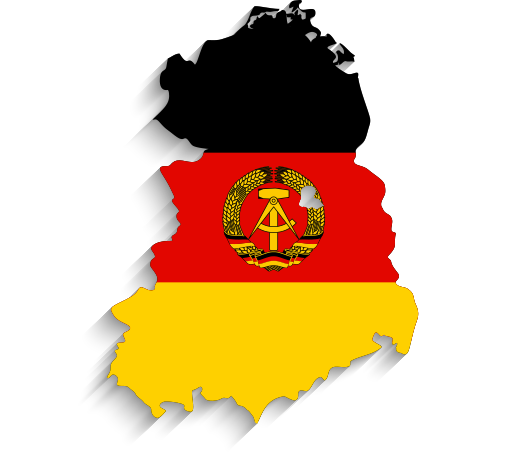(Grant Agreement n. 669194)
(Oels, 12/3/1928)
Member - Politburo (1971-1989)Secretary of Economics - Central Committee (1973-1976)
Member - Working Group Balance of Payments (1974-1989)
Member - Economic Commission (1976-1989)
Member - Working Group FRG (1976-1989)

From 1973 to 1976 Werner Krolikowski replaced Günter Mittag as Secretary of the Central Committee for Economics. He had no professional or academic experience in this field, nevertheless, initially he aimed at learning the ropes. However, his focus on pointing to the balance of payments problem soon caused tensions with Erich Honecker. The Secretary General continued to rely on Günter Mittag’s expertise and concluded that Krolikowski was unable to cope with the tasks of his position. After being replaced by Mittag in 1976, Krolikowski became one of the fiercest opponents of Honecker’s economic and foreign policy. Especially, increasing rapprochement with and growing dependence on West Germany were objected by him. However, internally, he hardly ever voiced his critique, instead he denounced Honecker’s and Mittag’s policies in Moscow and thus contributed to the already suspicious attitude of the Soviet leadership. In the late 1970s and the first half of the 1980s, the Kremlin feared losing control over German-German relations and aimed at setting barriers to closer relations between East and West Germany. According to Krolikowski, Honecker and Mittag did not believe in the strength of socialism but were fascinated by the prosperity of the West and saw increasing cooperation as the only chance to maintain their model of “consumer socialism.”
|
It is hard to measure the Prime Minister’s influence on the East German economic policy and the GDR’s dealing with the West. He was personally involved in the early negotiations between East and West Germany, nevertheless, his infl... |
|
As Chairman of the East German State Planning Commission Gerhard Schürer was always part of the inner circle of the GDR’s economic elite. However, his power was limited and Honecker never promoted him to membership in the Politburo.... |
|
Günter Mittag was the economic mastermind of the Socialist Unity Party of Germany. Within the provisions set by Erich Honecker he executed control over the East German economy. He served as Secretary of the Central Committee for Economics... |
|
The head of the East German Ministry of State Security naturally had an in-depth knowledge about the overall situation in the GDR – also regarding economics. Mielke had a close relationship to Erich Honecker and they exchanged their view... |
|
As Secretary General of the Socialist Unity Party of Germany Erich Honecker shaped the East German economic and foreign policy most. It was him who took the final decisions. By introducing and pursuing the concept of “Unity of Economic a... |
|
Personal memorandum on the consultations of the SED Politburo on 09.08.1983
BArch, DE 1/58704 | Bl. 272–277
In this meeting of the “small circle” after the first “Strauß loan,” Honecker remarked: “The Milliardenkredit is not here to bridge gaps in the plan. No minister can rely on this. We have to act as if we would not have the money.” He pointed to the necessity of reducing short- and medium-term loans as well as continuity in the policy of reducing imports and increasing exports. Honecker was fully aware that the prolongation of the extreme foreign trade strategy would face opposition in the West, however, at that time there was still no alternative to reducing imports and selling oil on the world market. Nevertheless, pointing to developments in other Socialist countries, Honecker stated: “I want to put on record, that our economic system is altogether in best order. It just depends on using the advantages of socialism properly. I am saying this, because there is talk about reforms in many countries.” Even tough, the GDR had just prevented bankrupty, there was no intention to change the failed economic policy. The leadership opted for a continuous muddling-through. - Available only in the archive: https://www.bundesarchiv.de |
|
Memorandum on the discussion of the draft of the five-year plan 1976–1980 presided by Honecker
BArch-DDR, DE 1/58633
In this meeting of the “small circle” in November 1976 dealing with the next five-year plan the Chairman of the State Planning commission, Gerhard Schürer, stated: “The gap between imports and exports has widened further but it has to be closed by all means. That is a fateful question for the GDR.” In the following discussion some thought about rigorous import cuts, others reasoned about the causes within the CMEA and problems on the Western sales markets. Nevertheless, Günter Mittag and Erich Honecker also highlighted positive examples of trade relations with the West and the growing Western acceptance of countertrades. Honecker concluded that the plan 1976–1980 is shaped by the enforcement of the “Unity of Economic and Social Policy,” which he did not intend to change. Honecker did not expect any progress in CMEA integration, expressed his worries about the balance of payments, and advocated increasing exports to the West and developing countries as well as cooperation on third markets if they earned hard currency. - Available only in the archive: https://www.bundesarchiv.de |
